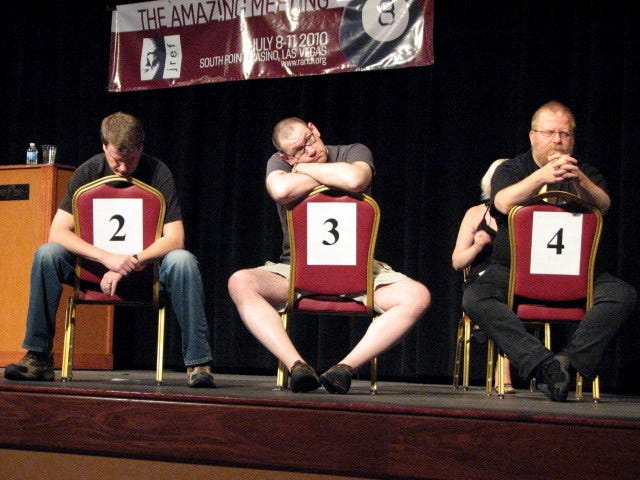How Proof Beats Promises
A story, quote, and lesson from believing the paranormal
Put your money where your mouth is
We hear it all the time: “I can do this.” “I’m great at that.” “If I just had the chance, I’d prove it.”
But as with many things in life, claiming an ability is one thing, actually demonstrating it is another. Nowhere is this gap between words and results more obvious than in the curious world of paranormal prize challenges.
Over the past century, skeptics and scientific organizations have offered public rewards, sometimes as high as $1 million, for verifiable proof of paranormal abilities. Telepathy. Clairvoyance. Psychokinesis. You name it. Dozens of prizes, thousands of applicants… and yet not a single person has successfully claimed the money.
Consider the most famous of these: The JREF’s $1 Million Paranormal Challenge. For years, magician and skeptic James Randi invited anyone to prove their supernatural powers under controlled conditions. The results? Not one winner.

In one particularly public example, Israeli performer Uri Geller, famous for allegedly bending spoons with his mind, agreed to appear on The Tonight Show with Johnny Carson.
Unbeknownst to Geller, Carson (a former magician himself) consulted Randi to set up the props and prevent any sleight of hand. When faced with true scientific controls, Geller was suddenly unable to perform his feats.
“I don’t feel strong tonight.”
- Uri Geller after failing his iconic spoon bending trick.
This story may seem like an extreme case, but it reveals a universal pattern. Just as thousands have claimed they could win paranormal prizes, we often hear similar overconfidence in everyday life: “I could get in shape if I wanted to.” “I could easily learn to code.” “I’d get that promotion if I really tried.”
Could you? Maybe. But as the old saying goes, the proof is in the pudding. Saying you can is easy. Actually doing it is rare.
If not even one psychic could walk away with a million-dollar prize, it serves as a useful reminder for all of us: When faced with a goal, whether paranormal or practical, it’s not enough to believe or to talk about it. The world responds to results, not intentions.
In our own pursuits, the same truth applies. Anyone can imagine success. Few commit to the process that brings it about: deliberate practice, patience, and proof of progress.
Whether you’re learning a new skill, building a career, or pursuing a creative passion, the gap between saying and doing is where most fall short. But if you focus less on appearances and more on genuine results, you’ll stand out in a world full of unclaimed prizes.
So now I ask you:
Where in your life are you tempted to say more than you show, and how can you start closing that gap?



What are great way of challenging us with this story. It is in human nature that we can be directed to take the easy route of saying great things but not executing them. And this article reinforce the need to focus on execution so that great ideas are built on results. Thanks
I love this Martin! It reminds me of how I always felt like “speaking things into existence” would give me more confidence, but the ultimate confidence booster for me has always been actually doing it instead of trying to make myself believe I can.💪❤️